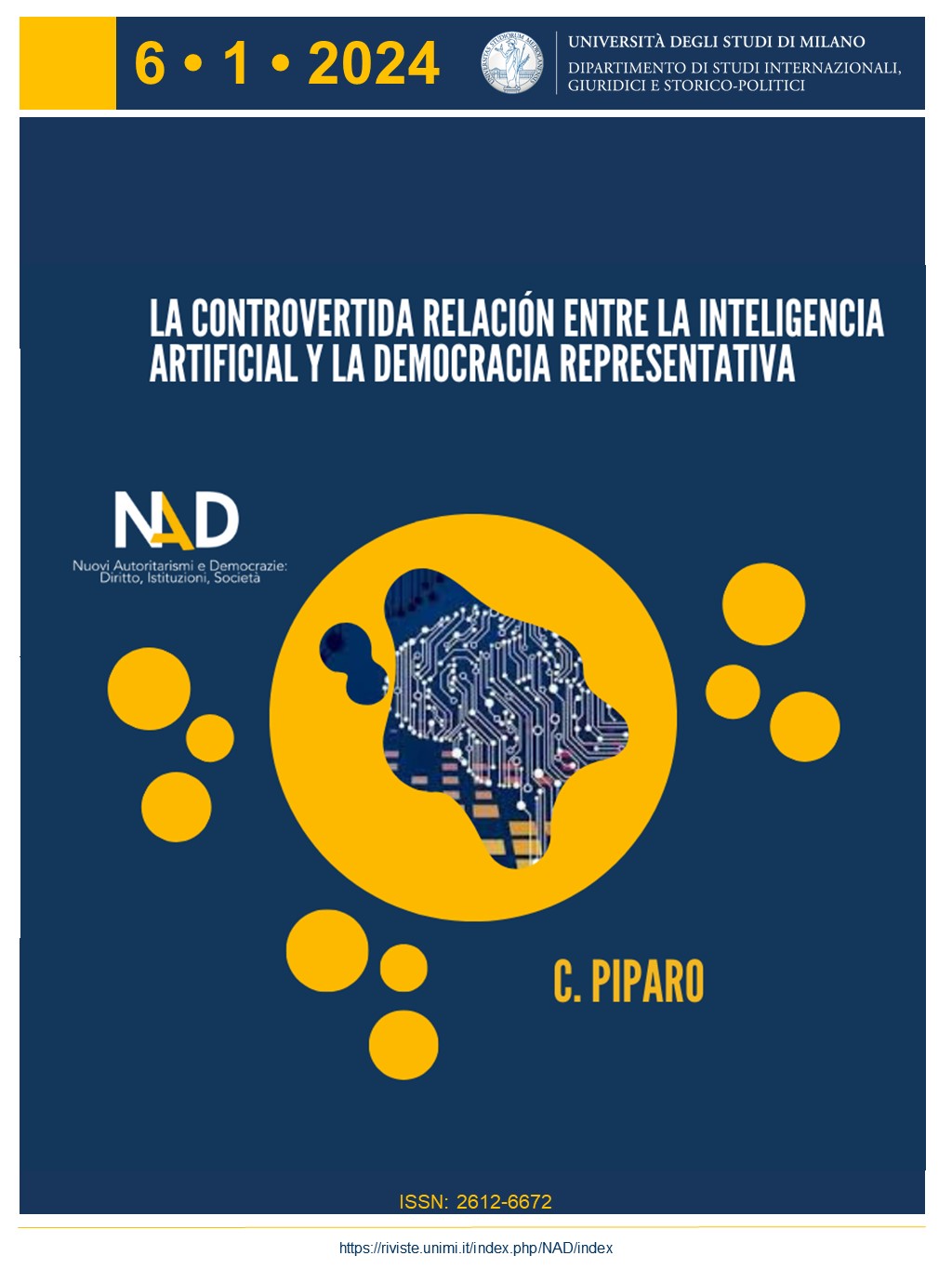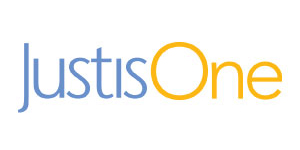The Controversial Relationship between Artificial Intelligence and Representative Democracy
DOI:
https://doi.org/10.54103/2612-6672/23983Keywords:
Artificial Intelligence, Algorithm, Democracy, Administrative Legitimacy, Political Legitimacy, Equality, Law, Digital Revolution.Abstract
The rapid progression and widespread integration of Information and Communication Technology have ushered in a new era of sweeping social and legal transformations. Among the many groundbreaking advancements, Artificial Intelligence (AI) has emerged as a pivotal force, permeating nearly every facet of our daily lives. From commerce and industry to healthcare, transportation, and entertainment, AI technologies have become indispensable tools shaping how we interact, work, and navigate the world. While AI holds great potential, it could threaten democracy and its principles if misused. Indeed, the Italian Constitution protects humans' fundamental rights of freedom (physical freedom, freedom of speech, association, reunion, etc.) as the main base to develop the democratic discourse and dialogue. AI, in this scenario, can potentially bypass this fundamental protection, representing a major threat to representative democracy. This article first describes the concepts of AI and discusses its benefits for society. It then focuses on the principles of representative democracy as they appear in the Italian Constitution and highlights potential algorithmic threats towards representative democracy itself. Finally, the paper offers possible solutions to counter algorithmic threats to democracy.
References
R.C. Schank, What’s IA, Anyway?, in IA Magazine, Winter 8, 4, 1987;
J. N. Kok, E. J. W. Boers, W. A. Kosters, P. Putten, M. Poel, Artificial Intelligence: Definition, Trends, Techniques and Cases, in Knowledge for sustainable development: an insight into the Encyclopedia of life support systems, Leiden, 2002;
D. U. Galetta, J. C. Corvalan, Intelligenza Artificiale per una Pubblica Amministrazione 4.0? Potenzialità, rischi e sfide della rivoluzione tecnologica in atto, in Federalismi, 3, 2019;
M. Cheng-TekTai, The impact of artificial intelligence on human society and bioethics, PubMed, 2020;
J. C. Corvalan, La primera inteligencia artificial predictiva al servicio de la Justicia: Prometea, in La Ley 2017;
C. Mortati, Istituzioni di diritto pubblico, Padova, Cedam, 1975;
V. Crisafulli, La sovranità popolare nella Costituzione italiana, in ID, Stato, popolo, governo: Illusioni e delusioni costituzionali, 1985;
A. Morelli, La democrazia rappresentativa: declino di un modello?, 2015;
A. Jungherr, Artificial Intelligence and Democracy: A Conceptual Framework, 2023; DOI: https://doi.org/10.1177/20563051231186353
V. Polonski, How Artificial Intelligence Silently Took over Democracy, in World Economic Forum, 2017;
T. Scholz, Digital Labor: The Internet as Playground and Factory, 2012;
A. Papa, La problematica tutela del diritto all’autodeterminazione informativa nella big data society, in Liber amicorum per Pasquale Costanzo, 2020;
J. Buolamwini, T. Gebru, Gender shades: Intersectional accuracy disparities in commercial gender classification, in S. A. Friedler, C. Wilson, Proceedings of the 1st conference on fairness, accountability and transparency, Vol. 81, 2018.

Downloads
Published
How to Cite
Issue
Section
License
Copyright (c) 2024 Carlo Piparo

This work is licensed under a Creative Commons Attribution-NonCommercial-NoDerivatives 4.0 International License.









